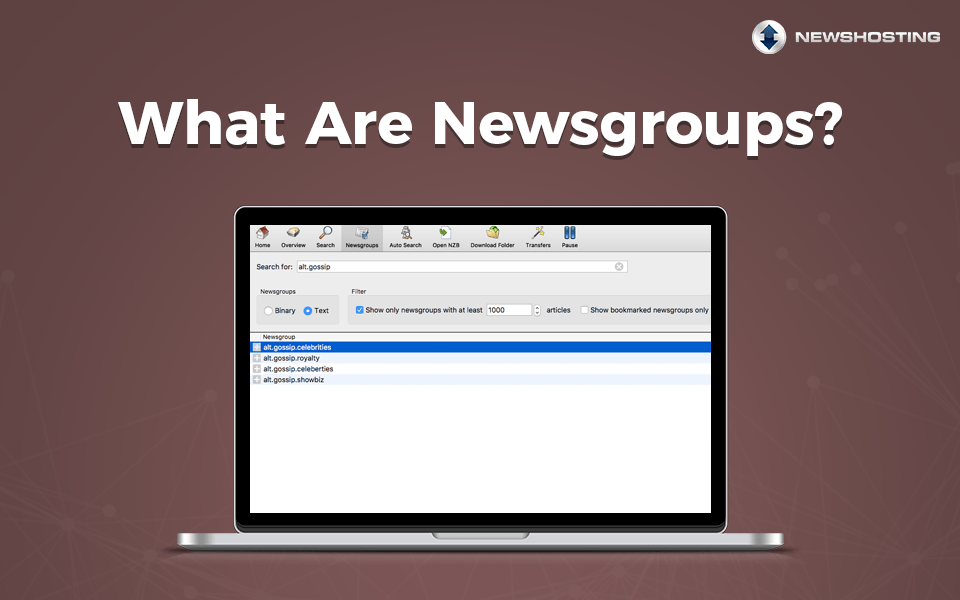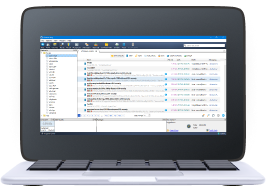Usenet is a decentralized global network where users share and read articles across topic-based discussion groups called newsgroups.
Key Takeaways
- – Usenet is a decentralized global discussion network.
- – It uses topic-based newsgroups for organized communication.
- – Access requires a provider, a newsreader, and optionally a search tool.
- – Newshosting offers long article retention for archived access.
Usenet, as a global discussion system, predates the World Wide Web. It was originally developed in 1979 to enable users to exchange messages and articles across a decentralized network of servers. Unlike forums hosted on individual websites, Usenet uses a distributed model where information propagates between servers, offering fast access and long-term archives of conversations.
Usenet is organized into categories called newsgroups. Each newsgroup focuses on a specific subject, from science and technology to entertainment and current events. Users participate by posting messages, called articles, to a particular newsgroup. These articles are then shared across the global Usenet network, making them accessible to others subscribed to the same group.
To access Usenet, a user typically connects through a Usenet provider like Newshosting. The provider maintains servers that store millions of articles across tens of thousands of newsgroups. Specialized software known as a newsreader is used to browse, search, and read these articles. Some newsreaders also include integrated search functions and automation tools for a streamlined experience.
One of the defining features of Usenet is article retention—the number of days articles remain available on the server. Newshosting offers among the longest article retention periods, giving users access to discussions and posts dating back several years.
Unlike other social platforms, Usenet remains decentralized. There is no central authority, making it a resilient and independent system. Many users value its speed, reliability, and access to discussions that are preserved long after they are posted.
Usenet continues to serve as a powerful network for information exchange, built on over four decades of shared knowledge.
How Does the Usenet Network Work?
Usenet operates through a decentralized server network. Here’s how it functions:
- – Article Submission: A user posts an article to a specific newsgroup using a newsreader.
- – Server Propagation: The article is stored on the user’s Usenet provider’s server and then propagated to other servers around the world.
- – Replication: Participating servers replicate new articles so they become accessible across the network.
- – Access: Other users connect via their Usenet provider and newsreader software to read or reply to those articles.
- – Search Tools: Usenet Indexers are often used to locate specific articles based on subject or time, and many newsreaders, including the Newshosting Newsreader, have built-in Usenet search tools.
Usenet History Timeline
- – 1979: Created by Tom Truscott and Jim Ellis at Duke University, with contributions from Steve Bellovin at the University of North Carolina
- – 1980–1990s: Expansion into academic, scientific, and hobbyist communities
- – 2000s: Rise of commercial Usenet providers and automated tools
- – Present: Continued use for research, discussion, and archival access
Why Is Usenet Still Used Today?
Usenet vs Other Platforms
| Feature | Usenet | Other Social Platforms |
| Structure | Decentralized | Centralized |
| Access Method | Newsreader + Provider | Web app or mobile app |
| Article Retention | Often several years | Usually weeks or months |
| Moderation | Group-based or unmoderated | Centralized policies |
| Focus | Topic-driven discussions | Algorithmic feeds |
- – Participate in topic-specific discussions across thousands of newsgroups
- – Access long-term archives through high article retention
- – Explore niche or underrepresented topics
- – Use decentralized communication tools outside traditional Web platforms
Frequently Asked Questions
Newsgroups are organized discussion categories that focus on specific topics. Users post articles to these groups to share ideas and respond to others.
Yes. Usenet continues to operate globally, supported by providers like Newshosting and used by researchers, hobbyists, and technology enthusiasts.
Availability depends on article retention. Newshosting provides access to articles stored for thousands of days, covering more than a decade of history.
A Usenet subscription from a provider, a newsreader application, and optionally an Indexer to help locate specific discussions.
Usenet is used by a wide range of individuals including researchers, developers, tech enthusiasts, and anyone interested in structured, topic-specific discussion platforms.
To learn more about using Usenet with Newshosting, visit our Newsreader setup guides.
Summary
Usenet is a modern, decentralized network that supports article-based discussions across thousands of newsgroups. With providers like Newshosting offering high-speed access, extensive article retention, and user-friendly tools, Usenet remains a reliable and structured way to participate in global conversations online.







